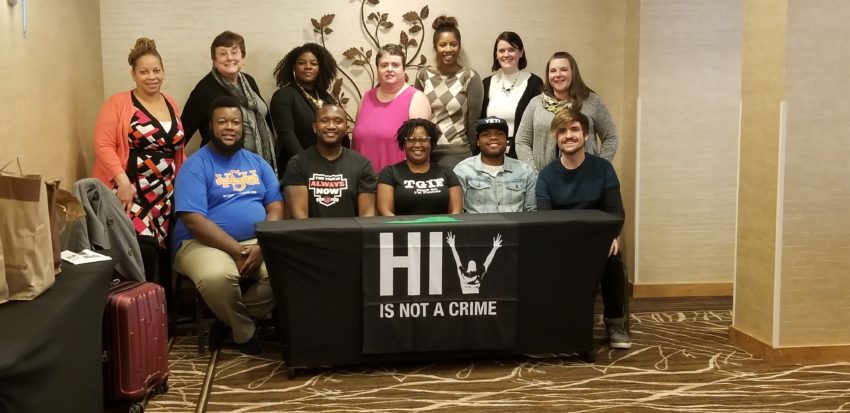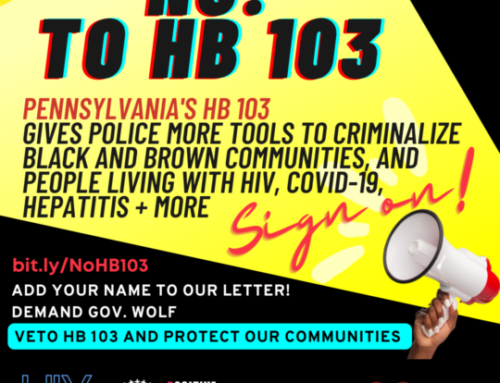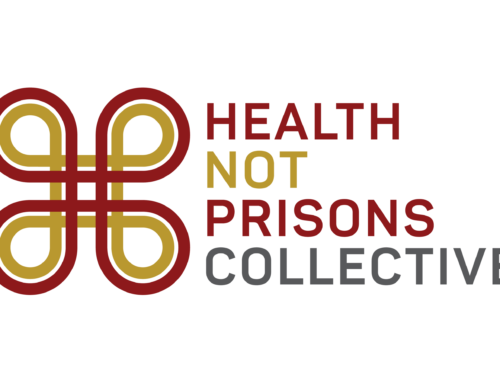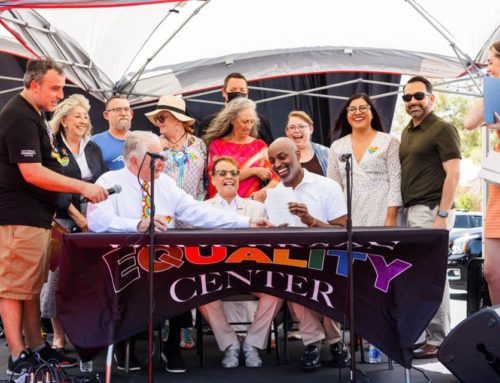 February 27, 2019: PWN-USA Virginia State Lead Deirdre Johnson is one busy advocate. Since the HIV Is Not a Crime III National Training Academy in Indianapolis last June, she has been collaborating with fellow advocates and activists in her home state of Virginia to build the ECHO VA (Ending Criminalization of HIV and Over-incarceration in Virginia) coalition.
February 27, 2019: PWN-USA Virginia State Lead Deirdre Johnson is one busy advocate. Since the HIV Is Not a Crime III National Training Academy in Indianapolis last June, she has been collaborating with fellow advocates and activists in her home state of Virginia to build the ECHO VA (Ending Criminalization of HIV and Over-incarceration in Virginia) coalition. PWN interviewed Deirdre about her work building this coalition, the highlights and challenges, and what they’re working to achieve.
Q: Tell us a little about what you are working on in Virginia. How did you get started? What have you accomplished so far?
A: Ending Criminalization of HIV and Overincarceration in Virginia (ECHO VA) Coalition was created in June of 2018 while attending HIV Is Not a Crime III. Cedric Pulliam and I decided this was an issue that need to be addressed in Virginia. We held our strategic planning meeting in November, which was hosted by the Sero Project and facilitated by Kari Hartel and Tami Haught. 17 people attended, including representatives from the Alexandria HIV/AIDS Commission; Arlington Young Democrats: Health, Education & Environment Caucus; the Black Leadership United Institute (BULI); C2EA; GMHC; Inova Juniper Program; PEPFAR; PWN-USA; RHAPPS; SERO Project; TCNP; Virginia Department of Health; and VORA.
We were able to get these organizations on board by writing emails and using “the power of the ask,” like PWN Organizing Director Waheedah Shabazz-El would say. Thankfully, most of them said yes. We are still working on gaining support from local AIDS service organizations and community based organizations across the state, as well as more people living with HIV or affected by mass incarceration.
In addition to having support from various agencies, we have been selected to present at the SYNC2019 conference, along with fellow advocates from Georgia and Florida, on how we were able to gather and organize as a coalition in such a short amount of time and keep the momentum going. Our hope is to present at more conferences and to host webinars to build a national coalition.
Q: What have been the biggest challenges and successes so far?
A: The biggest challenge has been getting the word out that we are here and ready for change in Virginia; but we also recognize that we are less than a year old.
Another challenge is working hard to make sure everyone has a seat at the table–but realizing not everyone is ready to eat. Some are concerned we are a political group, and that is not us at all. Awareness and education about our current laws in regards to HIV and other issues that lead to mass incarceration and changing those laws is what we are focused on. We want to be an asset to agencies and allies, especially if they choose to join our coalition.
Of course, we would love funding to elevate our work to a new level.
Our biggest success has been having some awesome folks in our corner who support us, including Positive Women’s Network – USA, Virginia Department of Health, PEPFAR, the Sero Project, INOVA Juniper, Alexandria HIV/AIDS Commission, BULI, and strong, meaningful involvement of people living with HIV.
Q: What do you hope to have accomplished with your coalition by the end of 2019? 3 years from now?
A: We are excited because we are not only focused on HIV criminalization but on over-incarceration as well, so we are hoping to have the Department of Corrections on board by the end of the year to assist in our efforts.
In addition, we would also like to have our policy agenda and media strategies ready within the next month to assist with a letter campaign for those currently in office and those seeking office in upcoming elections on key issues affecting HIV criminalization and over-incarceration in Virginia.
In 3 years, we see ourselves as the go-to on HIV criminalization and over-incarceration. We want to be THE resource on how to mobilize effectively and make changes that positively us affect all. Eventually, we would love to have financial support to be able to provide direct services for folks experiencing HIV criminalization or incarceration and, of course, have paid staff.







